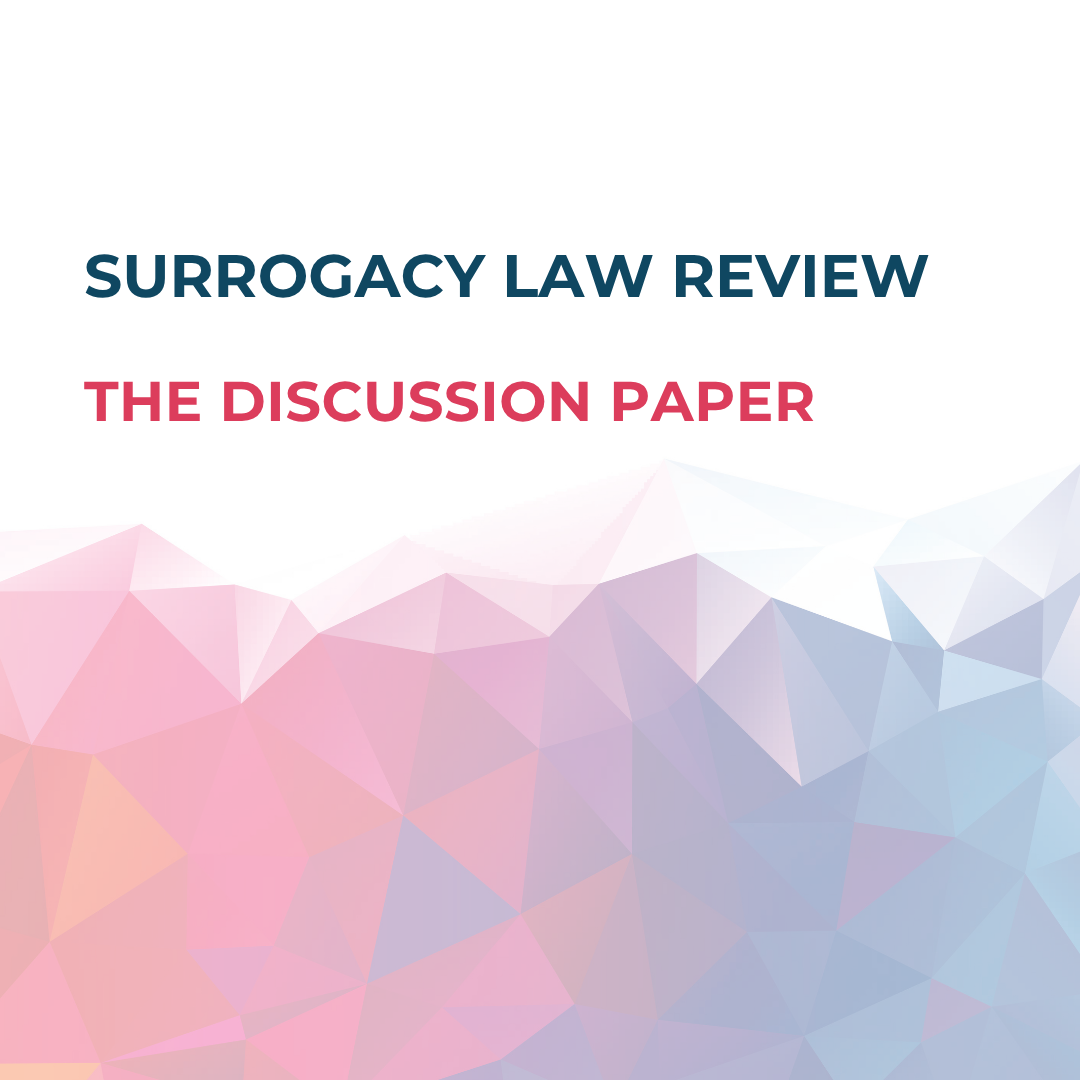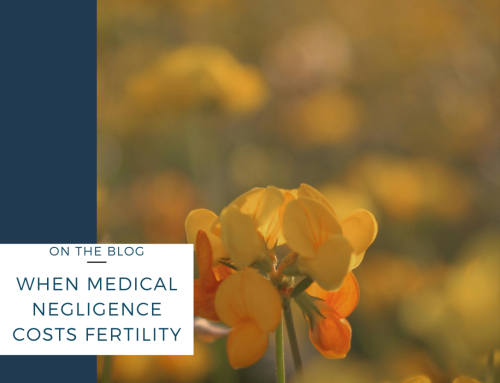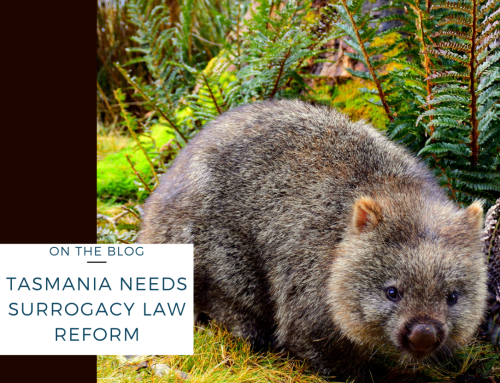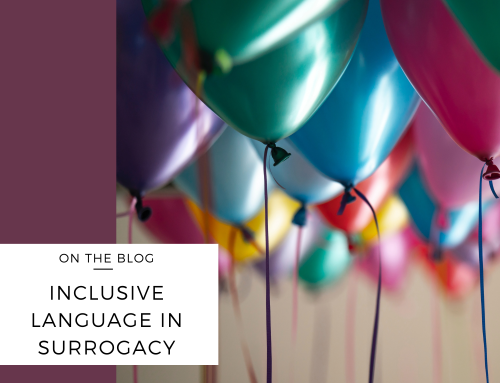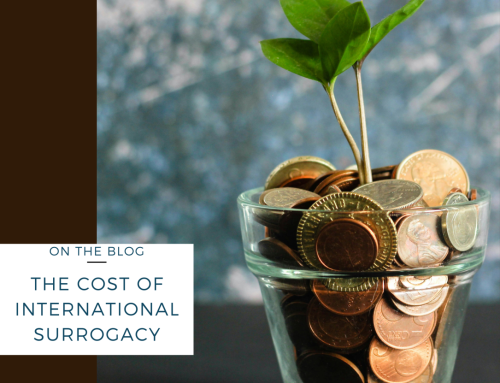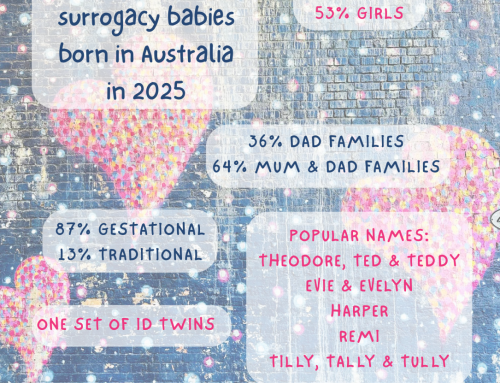Surrogacy law review – next steps.
The Australian Law Reform Commission is reviewing Australia’s surrogacy law and released its Discussion Paper in November 2025.
The review was announced in December 2024, and the Issues Paper was released in June 2025. The community, people with lived experience of surrogacy and professionals and researchers made submissions to respond to the Issues Paper. The ALRC has considered the submissions and feedback and released a Discussion Paper, which was another opportunity to give input on the future of Australia’s surrogacy law.
You can read the Discussion Paper on the ALRC website. You can read my submission in response to the Discussion Paper.
There are some things in the Discussion Paper that I agree with, including:
- A nationally consistent surrogacy law framework. This one, I think, is uncontroversial. Our patchwork surrogacy laws make surrogacy difficult to navigate in Australia, and it is to everyone’s benefit that we clean it up and implement one, consistent surrogacy law across Australia.
. - A National Regulator. Surrogacy and ART would be regulated by a body that can oversee arrangements, develop standards and raise awareness for surrogacy in Australia.
. - Surrogate’s costs to be covered and a deliberate step away from referring to surrogacy as either ‘altruistic’ or ‘commercial.’ The ALRC recognises that commercial surrogacy can be motivated by altruism, and that altruism is no guarantee that an arrangement is not exploitative. There may also be provision for a surrogate to receive a monthly payment for expenses.
. - Payments for hardship, or a version of compensated surrogacy: Additional payments can be made, for loss incurred by reason of discomfort, pain, suffering and assumption of risk involved in pregnancy and birth. Such payments may be agreed to by the parties, and capped by the National Regulator. My feedback is that the framing of these expenses for ‘hardship’ is not appropriate, but other than adjusting the wording I support this proposal.
. - The establishment of regulated surrogacy support organisations (SSOs) to assist intended parents and surrogates to meet. The SSOs would be required to be licensed and regulated by the National Regulator. There’s some devil in the detail, but overall I am pleased that services would need to be licensed and regulated, which adds some safeguards against exploitation which are apparent in Surrogacy Australia’s Support Service.
. - Counselling and legal advice: surrogacy arrangements would include provision for everyone to complete psychological screening and implications counselling, and to receive independent legal advice. The Discussion Paper proposes explicit requirements for counselling and what is involved.
. - Approval: surrogacy arrangements will need to be approved before proceeding. This is an important safeguard that takes decision-making away from individual lawyers, counsellors and fertility clinics and places it with an independent body. An SSO, and the national regulator, would be responsible for approving a surrogacy arrangement.
. - Traditional and gestational surrogacy: consistently legal across the country, with no differences in process or access to services.
. - Automatic recognition of parentage: If an arrangement has been pre-approved, then there will be no need to seek a post-birth parentage order. The intended parents will be able to register their child’s birth if they have complied with the pre-surrogacy requirements. Arrangements that did not obtain pre-approval would still be able to apply to the Family Court for a parentage order.
. - Family Court jurisdiction: disputes about parentage, and non-complying arrangements, would be heard in the Federal Circuit and Family Court of Australia. I think this is appropriate, where specialist Judges can make appropriate decisions about surrogacy matters and parentage.
. - International surrogacy recognition: children born via international surrogacy will have a pathway to have their parentage recognised by the Family Court (FCFCOA). This is a good proposal on the face of it – all children should have their parentage recognised, regardless of how and where they were born. I think there should be scope for some international surrogacy arrangements to be automatically recognised in Australia, without the need for court proceedings.
. - Medical and social need – while I believe in removing barriers to social surrogacy, the ALRC recommends that intended parents must establish a medical or social need for surrogacy, and that there be a broadening and clarity of the definition of what meets the criteria. I agree there should be clarity – but I think there’s work to be done on this proposal.
. - Surrogates must be over 25. I think this is an important safeguard for surrogates to ensure they are sufficiently mature and can make informed decisions before proceeding with a surrogacy arrangement.
. - Streamlined citizenship and passport processes. The surrogate will not be required to provide consent for the issuing of a passport for a child born via approved domestic surrogacy and/or where a parentage order has been made. Intended parents via international surrogacy would be able to obtain a passport for their child without the surrogate’s consent, if they have evidence that the surrogate has relinquished the child to them. This is an improvement on the current system, whereby intended parents are often required to obtain their surrogate’s consent to a passport for their child, even years after the birth.
There’s so many things I love about the recommendations and it’s very affirming to see the lived experiences and expert opinion reflected in the Discussion Paper. I’m proud of the community for heeding the call and contributing to the future of Australian surrogacy law. I am also very proud that many of the recommendations are consistent with my submission and the findings from my Churchill Fellowship.
Some things I think need further discussion:
- Proposal 27 suggests that the intended parents would pay funds into an escrow account established by the SSO, to cover the costs of the surrogacy arrangement. I am not against escrow/trust account options for managing surrogacy expenses, but it should be via an independent body, not through an SSO. I am also conscious of the costs this can add for intended parents. Perhaps escrow should be optional rather than required, and it must be sufficiently regulated to avoid the situations we’ve seen in the USA of intended parents’ money going missing.
I have worked with arrangements where disputes about finances have arisen. Independent trust accounting may help with these arrangements, but are not a silver bullet.
. - Proposal 37 suggests that intended parents must register their intention to engage in international surrogacy before doing so, and that there would be ‘permitted destinations’ for overseas surrogacy. I have concerns for how this would work in practice, how any organisation can declare a destination to be ‘permitted’ or take responsibility for the ever-changing international surrogacy landscape.
I query how intended parents are to know that they must register their intention before proceeding – many intended parents don’t seek legal advice until after a pregnancy is underway. I think this proposal seeks to regulate the international surrogacy industry, with limited power to do so.
Unfortunately, even some surrogacy destinations look good and ethical, until they don’t. It would be difficult to establish what a ‘permitted destination’ would be and how it can be assessed and maintain that status.
. - Criminalising international commercial surrogacy. The ALRC proposes to remove criminal sanctions for engaging in international commercial surrogacy and instead implement civil penalties (such as fines). I think this is an improvement on the current criminalisation of intended parents but am not convinced that civil penalties are in a child’s best interests. I believe intended parents who have engaged in international surrogacy should have the opportunity to provide feedback on this proposal and others that relate specifically to international surrogacy.
Submissions in response to the Discussion Paper closed on 19 December.
While the community has made a mammoth effort in writing submissions, it is important not to be complacent. I expect people who are against surrogacy will make an effort to submit in response to the Discussion Paper. If you have thoughts on any aspect of the Discussion Paper, it is important to give that feedback to the ALRC.
The final report from the ALRC is due to government in July 2026.

